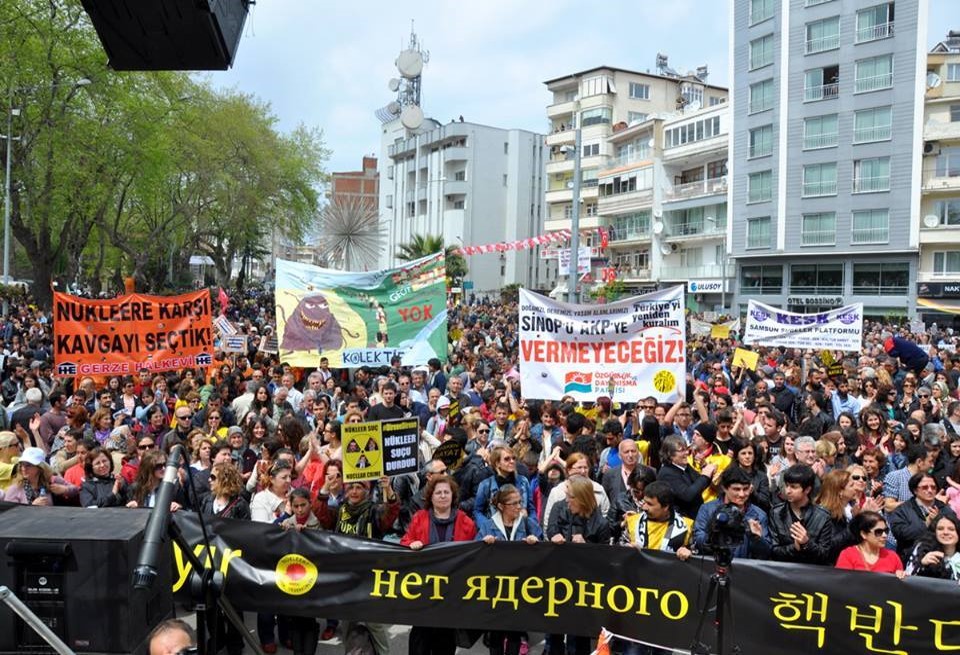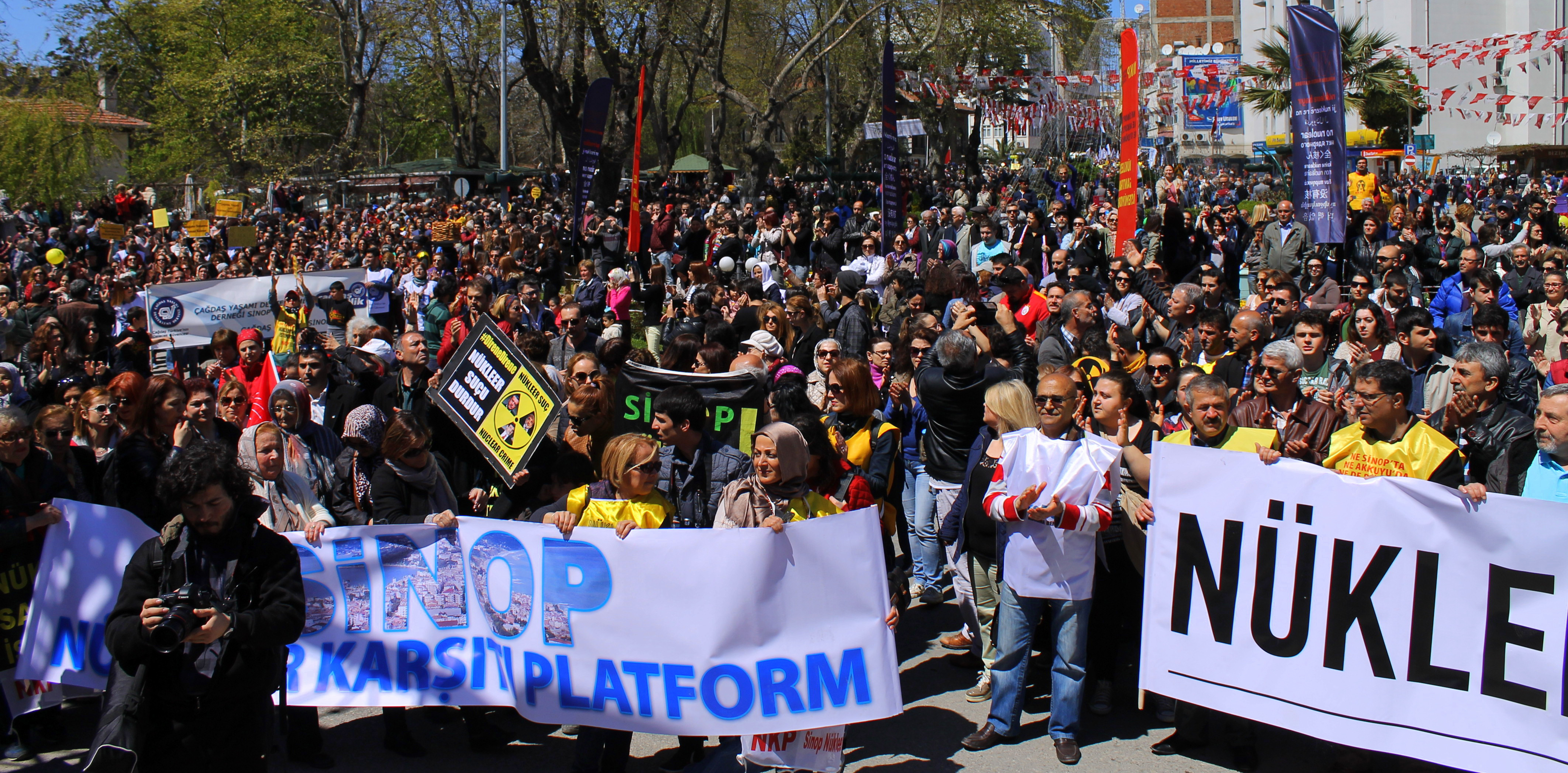Turkey's anti-nuclear movement in the context of risk society: The case of Mersin and Sinop.
 |
||
 |
Pinar Demircan | |
 |
||
 |
US$2,000 |
Research Background Final Report (abstract) Others

Anti-nuclear demonstration in Sinop

Anti-nuclear demonstration in Sinop
Research Background
This research involves nuclear power plant projects which were signed through intergovernmental agreements beginning with 2010 and antinuclear movement in Turkey within the context of risk society conditions such as Fukushima Nuclear Accident, nuclear war possibility, climate change. Located in the middle of the Europe and Asia continents Turkey has been well known with its role in the ongoing war and refugee tragedy in her neighborhood as well as risks of rising authoritarian political tendency and the growing irrelevance of democracy and neoliberal arrogance on nature and human rights. Turkey has 2 nuclear power plant projects currently which have been signed via inter-governmental agreements with Russia and Japan.
Locations for these projects were chosen as Mersin at Mediterranean sea coast(the southeast of Turkey)and Sinop the northeast city of Turkey at Black sea coast.
Antinuclear groups aim to inform and educate civil society by getting organized in associations, organizations and platforms under changing political, social and economic circumstances. Strong antinuclear movement in Turkey have been fighting against these projects but they have to regenerate themselves by new experiences and practices through new risks. No matter nuclear power plants make negative impact in its region and should interest the whole world in case of an accident, antinuclear movements are also ignited locally just like other environmental movements. But despite opposition to nuclear power projects is about %70 in both cities due to Chernobyl memory of Turkey especially at Blacksea and good informative work of antinuclear movement, government of Turkey insists on realizing her nuclear dreams.
The Turkish antinuclear movement with a history of 43 years, was started when land licence was given for Akkuyu Nuclear Power Plant Project 22 years after Turkey had signed Atom For Peace Agreement. Being one of the very first countries to sign Atom for Peace, governments of Turkey have been in desire to build commercial nuclear power plants following Turkish Atomic
Energy Institution was established in 1956. Turkey has never achieved her nuclear plans due to political, social, economic reasons. But citizens in Turkey once more has come across with nuclear power plant projects due to growing authoritarianism since 2010. At first, a governmental agreement was signed between Russia and Turkey to have a nuclear power plant established in Mersin at the coast of Mediterranean in 2010 . Three years later an other governmental nuclear agreement was signed with Japan to have another nuclear power plant in Sinop at Blacksea coast.
Both agreements included reactor construction via Build-Own-Operate (B.O.O.) type reactor agreement. Civil society organizations, environmental groups, associations have been participating and supporting antinuclear movement in Turkey. Nuclear opposition has risen due to government's ignoring civil society from decision making processes even by making use of law and regulations which have been increasingly manipulated. Despite it was reflected on global media that Japan and Turkish nuclear agreement was cancelled in the beginning of 2019 due to revised and doubled cost, representatives of government made an explanation as if Sinop project has not been cancelled. In fact, there is a possibility of involvement of China or Russia governments into Sinop project.
This research aims to understand deeply how actors of antinuclear movement frame risks under siege of neoliberal conditions and how they communicate those risks with public and find out whether movements in Sinop and Mersin establish solidarity bridges. In order to realize the better understanding about risks, this study will apply Critical theory, Risk society Theory and Giddens's Reflexive Modernity and Radicalizing Modernity theories. Because such research may also provide empirical data information for Turkish antinuclear movement environmental movement theories and risk society theories which Ulrich Beck has introduced even before Chernobyl Nuclear Disaster happens this study can be expected to provide practical data. The discourse analysis of the local anti-nuclear struggle since 2010 that has been carried out in cities Mersin and Sinop. Written, oral, visual, audio all datas belong to the years after 2010 will be collected from antinuclear associations and organizations related with research areas.
[Sep. 2019]
Final Report (abstract)
Others
